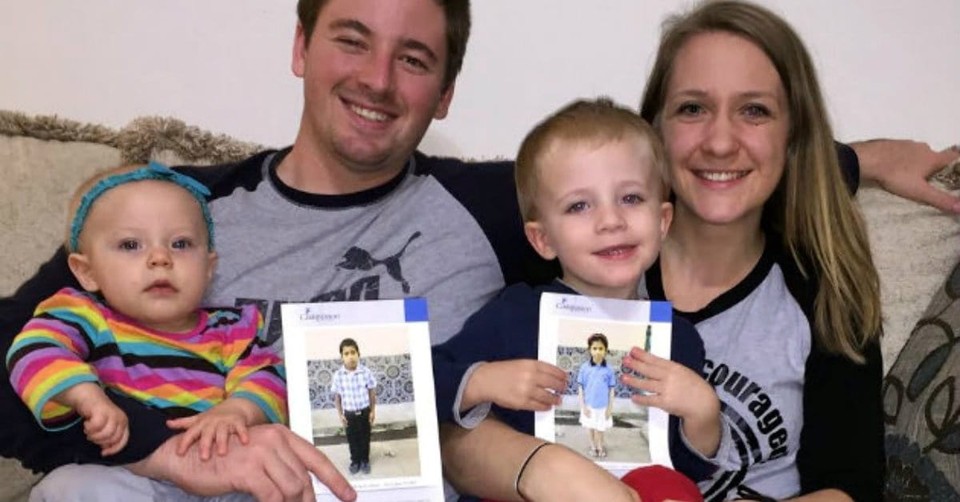5 Ways to Teach Your Kids to be Grateful

It is so easy to take what we have for granted. You might not even think about how blessed you are to have food in the pantry and shoes on your feet. The warm coat that we need in the wintertime isn't available for many people. Heat in the house isn't an option either.
Your children naturally fall into this pattern of forgetting to be grateful as well. They probably don't worry about where their next meal will come from or if they will be able to attend school tomorrow, but that is not the reality for millions of children around the world.
Teaching your children to be grateful for the blessings in their lives is an important lesson for all ages. Chances are, you sometimes need the reminder too! Here are five ways to incorporate lessons of gratitude in your family.
1. Sponsor a child in poverty
Sponsoring a child is a great way to understand the day-to-day life of the poor and help your children to appreciate what they have. Many children waiting for a sponsor are facing hunger, disease, illiteracy, abuse and the lack of opportunities.
If you sponsor a child, your children will be able exchange letters and photographs with your sponsored child and will begin to understand what his or her life is like in a developing country. They will also be giving the sponsored child an opportunity to receive food and clean water, medical care, educational assistance and much more. Some child sponsorship programs, like Compassion International, also provide opportunities for children to hear the gospel of Jesus Christ. As the relationship between your children and the sponsored child grows, they will learn to be grateful for what they have, and also become more compassionate toward those with less.
2. Take a family mission trip
Mission trips aren’t just for adults. Intergenerational mission trips provide opportunities for families to travel to poverty-stricken areas together.
It is not even necessary to leave the country. The United States has poor areas that provide opportunities to serve. More than likely, there is a soup kitchen, food pantry, or free clothing center in your own community that could use your family's help with serving food, organizing donations, or just lending a hand to keep the facilities neat.
Just because it's a day mission trip doesn't mean it doesn’t count! Doing the Lord's work will cultivate an attitude of gratefulness among your children, regardless of the length of the trip.
3. Fast as a family
There are different methods of fasting, and your family can use one or all of them as you teach your children gratefulness. The obvious fasting method would be to fast for a whole day. This is something that you can do with older (high school) children, but not recommended for families of young children.
But families with children of any age can fast one meal or fast from their regular foods. If your children are very small and unable to miss a meal, try eating only rice and beans for lunch or dinner. This is common practice in many parts of the world, and it provides the rare opportunity for your children to "taste" an experience. Remember to gather around the table and pray for those who live without enough food as you fast. You can even pick a day or meal to fast each week or each month. Continued fasting will help to remind your children of the many gifts they have been given.
4. Organize and complete a service project
If your children are hands-on learners, a service project is the perfect opportunity to teach your children gratitude. This can encompass a wide variety of actions, but one idea would be to start a clothing, food, book, or toy drive at your church. Your children can help promote the drive by making posters, and then follow through with the project by collecting the items and delivering them to the local collection facility (such as the food bank or Salvation Army).
Your children will be able to see the process of how their project helped other people, from its planning stages to its completion.
5. Go camping
This may sound like a strange addition to an article about teaching gratefulness, but it works. Pitch a tent (the backyard will do if your children are young), and tell your children that you will be living one night as refugees. Follow through with this by packing only the bare minimum… No materials for s'mores, no lighter fluid to start a fire.
If your children are mature enough to take the exercise to the next level, tell them that they can only bring three supplies with them from home, like many refugees are able to do. You can even get creative by giving specific details to your children about the situation that they are in. For example, tell your daughter, "You have an injured leg; you are only able to walk by leaning on another person." Tell your son, "You have hearing loss from an explosion that occurred near your village. You can only communicate without speaking."
Your night as a refugee won't be easy, but it will be a real example of how hard life is for refugees. It will teach your children gratitude for their own life and live in their memories for years to come.
Written by Carrie Dedrick, Family Editor for Crosswalk.com.
Sponsored by Compassion International. Compassion is a Christian organization that focuses on releasing children in poverty from their spiritual, economic, social and physical poverty and enabling them to become responsible and fulfilled Christian adults.
Image courtesy Compassion International.
Publication date: December 3, 2015
Originally published December 03, 2015.







